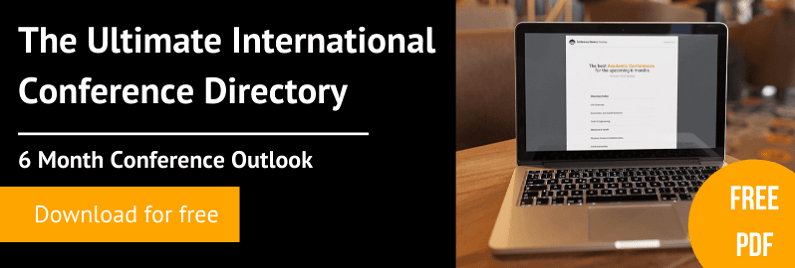
How to best keep your notes organised while reading scientific papers
Read a summary using the INOMICS AI tool
Every academic seems to be perpetually carrying around a huge stack of papers to read, but it can be tough to keep track of all of the notes that you write when you read these papers. Here are five ways to keep your notes organised, whether you're reading at home or travelling to a conference.
Download the Conference Monkey Directory - 6 Month Conference List
Use Evernote or similar note-taking apps
There are tons of apps for your phone that can help with note taking, and one of the most popular is Evernote. This allows to you make text notes as usual, but where it excels is the ability to digitalise paper notes too. You use your phone's camera to snap a photo of any handwritten or typed notes that you want to save, and a digital version of the notes is added to your app. Many apps have some kind of optical character recognition so that you can even search through the text of your paper notes once they are digitised.
Use a Kindle or other eReader to take notes
If you don't like handling large stacks of paper, especially when you're travelling, then you can use an eReader to read your papers. Readers such as Kindles allow you to load up PDF documents, so you can just download the PDF of your papers while you are at university and then load them to your Kindle. This means that you can read them anywhere, even if you don't have internet access, and eReaders are lightweight and easy to handle. While you are reading you can use the highlighting and note-taking features to save any important thoughts, and you can back up these notes to the cloud once you have internet access.
Use a collaborative tool like GDocs to take notes with others
If you have friends or colleagues who are working on the same topic as you, especially if you are collaborating on a project, then you might find it helpful to share your notes with each other. Using an online tool like Google Docs, you can take notes and share them with others, who can then add their own thoughts and ideas. These notes will be both searchable and versioned, so if you ever make a mistake or accidentally delete something important, then you can easily access earlier versions of the document to find the notes you need. You can decide whether you want your collaborators to be able to edit your notes directly, to make suggested edits, or only to add comments.
Try an online service like Mendeley
If you often swap between different devices or different locations when taking notes, then one option that might work for you is an online reference management service like Mendeley. The idea is that you can keep track of all of the papers that you have read, and then access your account using the web interface from any device and any location. The software allows you to open up the PDF version of a paper you want to read and then use functions like sticky notes and text highlighting to store your notes digitally. This also has the advantage of making both the papers that you have read and your notes searchable, so you can quickly find information when you need it.
Taking notes on paper is still a great idea
It might seem old-fashioned, but there's a reason that you still see people reading journal articles on paper and making notes in a notebook. Being able to have a physical copy of a paper in front of you can be very valuable to help you retain information, and you can easily highlight key portions of a text or write notes in the margins. However, be wary of doing what students are often taught to do, which is to simply highlight parts of the text that seem important. This is not a great way to learn as it does not encourage you to process any of the information you are highlighting. Instead, write down the key points of the paper in your own words in your notebook, and you'll retain the information far better.
Download the Conference Monkey Directory - 6 Month Conference List
Top Blog Posts to Read:
What's the difference between a conference, a seminar, a workshop and a symposium?
8 Benefits of Attending Conferences
What Should Women Wear to Academic Conferences?
What Should Men Wear To Academic Conferences?
A Guide to Asking Good Questions at Conferences
How To Improve Your Public Speaking
How to Get Accepted to an Academic Conference
-
- Conferencia
- (Hybrid)
- Posted 1 month ago
Call for Papers: Crypto Asset Lab Conference 2026
Between 22 Jan and 23 Jan in Milan, Italia
-
- Conferencia
- Posted 2 months ago
18. FIW-Research Conference International Economics
Between 19 Feb and 20 Feb in Vienna, Austria
-
- Conferencia
- (Hybrid)
- Posted 1 month ago
3rd Modern Finance Conference (MFC 2026)
Between 14 Sep and 16 Sep in Kraków, Polonia











